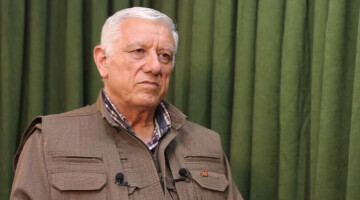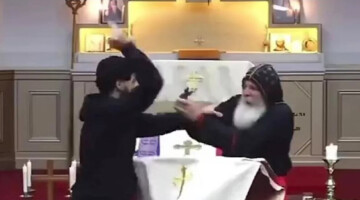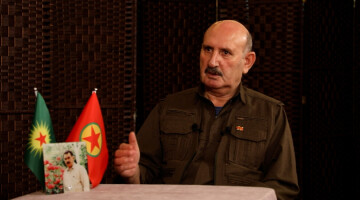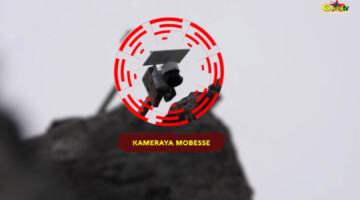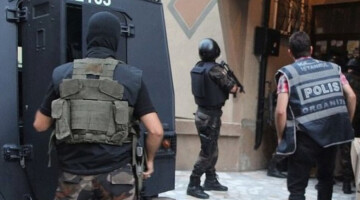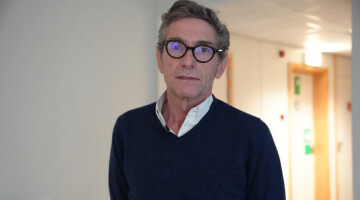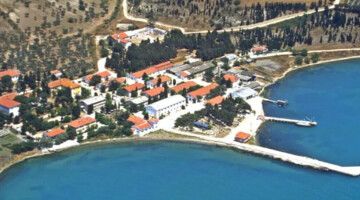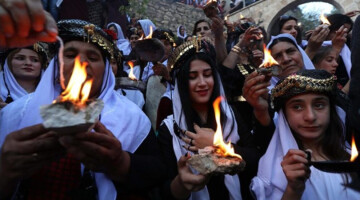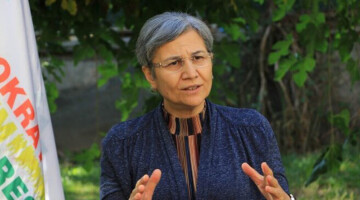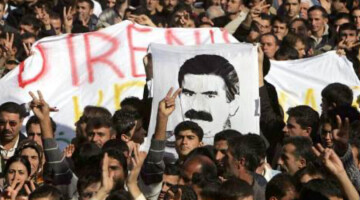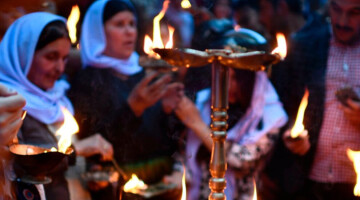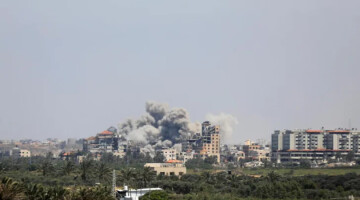The ban on the PKK is to be discussed during a special session in the German Bundestag on 26 February on the basis of the Die Linke’s motion demanding the removal of the ban, which has been in effect since 1993. In the meantime, Kurdish people living in Germany are preparing for demonstrations to protest the ban on the PKK. The co-chair of NAV-DEM (Democratic Society Centre), Yüksel Koç, said the ban on the PKK is anti-democratic and called on everyone to protest against it.
The session on the PKK ban is to be held on 26 February after a motion was submitted to the Federal parliament by Die Linke (Left Party). 3 representatives of NAV-DEM will attend as observers. The session will be the third one in recent times about the Kurds. There have previously been discussions on the situation in Sinjar and Kobane in the German federal parliament.
Kurdish people living in Germany are preparing to demonstrate before the special session in parliament to demand the removal of the ban. The demonstrations, also supported by many German organizations and intellectuals, will be held in 3 cities: Berlin, Cologne and Bremen, on 21 February. In the meantime, Kurdish institutions are also holding meetings with other institutions, NGOs, political parties, agencies and intellectuals to inform them about the negative impacts of the ban on Kurdish people living in Europe.
The co-chair of NAV-DEM, the federation to which around 250 Kurdish institutions are affiliated, Yüksel Koç, said it is absurd to continue keeping the PKK on the list of terrorist organizations, especially after the group defended humanitarian values in Sinjar and Kobane, adding that the ban had anti-democratic implications in Europe, such as the trial of Die Linke deputy, Goohlke, and other parliamentarians on the basis of this ban. Koç stressed that the implementation of the PKK ban was unlawful in a state like Germany, which now applies the ban in quite an arbitrary way. Koç emphasised that the ban on the PKK violates the principle of equality enshrined in the constitution, since it causes unequal treatment of the Kurds in Germany by denying the right to organize and violates the freedom of expression of the Kurds. She adding that many executives of Kurdish institutions have been put on trial on the grounds of the ban on the PKK. Koç said the violation of constitutional principles in Germany through the ban is not only the problem of the Kurds but of the entire German society, and said that Germans therefore must also protest the ban and demand its removal.
Koç further said that many European countries welcomed the peace process in Turkey that started in 2013 and that recently German Chancellor Merkel told Turkish PM Davutoğlu that Germany supports the process. She added that Germany must first of all abandon its anti-Kurdish measures if it intends to continue to support the peace talks in Turkey.
Koç also stressed that the continuation of the ban on the PKK would open political space to ISIS, against which the PKK is fighting almost alone by protecting the women and the people of different cultural and ethnic groups in the region. Koç said it is contradictory to ban holding posters of Kurdish Leader Abdullah Öcalan on demonstrations in Germany while the Turkish state officially carries out talks with him. Koç said the implementation of the ban on the PKK in 1993 was a political decision, hence its removal would also be a political one.
The ban on the PKK in Germany first and foremost criminalizes the Kurdish people living in the country: Many Kurdish associations and institutions have been raided, many politicians have been arrested and imprisoned, many Kurdish people have been dismissed from their jobs and lost their residence permits. Here are some of the examples of how the ban has been used to criminalise the Kurds in Germany since 1993.
*In 2007, a lawsuit was filed regarding a 6 year-old child as there was a flag of the KCK in the child’s pushchair during a demonstration. Later on the family was put on trial as the child was under 18.
*The executive of the Kurdish institution in Vehta was deprived of his citizenship and subjected to temporary residence.
*The executive of the Kurdish institution in Essen, F.C., was rejected for the job s/he applied for in Dusseldorf airport on the grounds of being an executive of a Kurdish institution.
*The residence permit of the YEK-KOM executive, A.Z, in Heilborn was cancelled despite his/her working in local government for 25 years.
*The residence permit of NAV-DEM executive Bahattin Doğan was cancelled on the grounds he organised Newroz marches and other cultural activities.
The demonstrations are to be held on 21 February in Berlin, Cologne and Bremen to demand the removal of the ban on the PKK.
Berlin: Postdamer Platz, at 14:00
Cologne: Rudolfplatz; at 14:00
Bremen: Leibnizplatz; at 14:00

